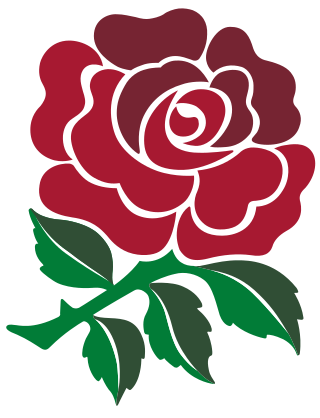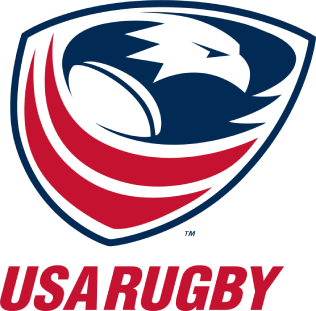Related Research Articles

The New Zealand national rugby union team, commonly known as the All Blacks, represents New Zealand in men's international rugby union, which is considered the country's national sport. Famed for their unmatched international success, the All Blacks have often been regarded as the most successful sports team in history.

Barry John is a former Welsh rugby union fly-half who played, during the amateur era of the sport, in the 1960s, and early 1970s. John began his rugby career as a schoolboy playing for his local team Cefneithin RFC before switching to first-class west Wales team Llanelli RFC in 1964. It was while at Llanelli that John was first selected for the Wales national team, a shock selection as a replacement for David Watkins to face a touring Australian team.

The England men's national rugby union team represents England in men's international rugby union. They compete in the annual Six Nations Championship with France, Ireland, Italy, Scotland and Wales. England have won the championship on 29 occasions, winning the Grand Slam 14 times and the Triple Crown 26 times, making them the most successful outright winners in the tournament's history. They are currently the only team from the Northern Hemisphere to win the Rugby World Cup, having won the tournament in 2003, and have been runners-up on three further occasions.

The Scotland men's national rugby union team represents Scotland in men's international rugby union and is administered by the Scottish Rugby Union. The team takes part in the annual Six Nations Championship, where they are the current Calcutta Cup holders. They also participate in the Rugby World Cup, which takes place every four years.

The Wales national rugby union team represents Wales in men's international rugby union. Its governing body, the Welsh Rugby Union (WRU), was established in 1881, the same year that Wales played their first international against England. The team plays its home matches at the Millennium Stadium in Cardiff, which replaced Cardiff Arms Park as the national stadium of Wales in 1999.

The Australia national rugby league team, the Kangaroos, have represented Australia in senior men's rugby league football competition since the establishment of the game in Australia in 1908. Administered by the Australian Rugby League Commission, the Kangaroos are ranked first in the RLIF World Rankings. The team is the most successful in Rugby League World Cup history, having won the competition 12 times, and contested 16 of the 17 finals, only failing to reach the final in the 1954 inaugural tournament. Only five nations have beaten Australia in test matches, and Australia has an overall win percentage of 70%.
The France national rugby union team represents the French Rugby Federation France in men's international rugby union matches. Colloquially known as Le XV de France, the team traditionally wears blue shirts with a Gallic rooster embroidered on the chest, white shorts and red socks in reference to the French national flag. Les Bleus mostly play home matches at the Stade de France in Saint-Denis, near Paris. They compete in the annual Six Nations Championship along with England, Ireland, Italy, Scotland and Wales. France have won the tournament on 26 occasions, winning the Grand Slam 10 times.

The Wales rugby league team represents Wales in representative rugby league football matches. Currently the team is ranked 17th in the IRL World Rankings. The team was run under the auspices of the Rugby Football League, but an independent body, Wales Rugby League, now runs the team from Cardiff. Six Welsh players have been entered into the Rugby League Hall Of Fame.

The United States men's national rugby union team represents the United States in men's international rugby union. Nicknamed the Eagles, it is controlled by USA Rugby, the national governing body for the sport of rugby union in the United States. USA Rugby is a member of Rugby Americas North, one of six regional governing bodies under World Rugby. Until rugby returned to Olympic competition, with sevens at the 2016 Rio Games, the United States was the reigning Olympic rugby champion, having defeated the one other competitor in 1920 and the two other competitors at the 1924 Summer Olympics.
Seamus Oliver Campbell is an Irish former rugby union player. He played flyhalf for Ireland from 1976 to 1984. He is most well known for his role in orchestrating Ireland's Triple Crown victory at the 1982 Five Nations Championship, breaking a drought of over 30 years. Campbell has been described as Ireland's most complete flyhalf since Jackie Kyle.
Michael Adams was an English professional rugby league footballer who played in the 1970s and 1980s. He played at representative level for Great Britain and England, and at club level for the Canterbury-Bankstown Bulldogs and captained Widnes. He played as a second-row or loose forward.
Eric Hughes is a retired English rugby union and professional rugby league footballer who played in the 1960s, 1970s and 1980s, and coached rugby league in the 1980s and 1990s. He played representative level rugby union (RU) for England (Under-15s), and representative level rugby league (RL) for Great Britain and England, and at club level for Widnes, Canterbury-Bankstown Bulldogs, St Helens and the Rochdale Hornets, as a wing, centre or stand-off, i.e. number 2 or 5, or, 3 or 4, or 6, and coached at club level for Widnes, Rochdale Hornets, St Helens, Leigh and the Wigan Warriors. He unwittingly added confusion to the Canterbury-Bankstown Bulldogs team as he was unrelated but played at the same time as the three Australian brothers named Hughes; Garry, Graeme and Mark.
Thomas Patrick David is a Welsh former dual-code international rugby union and rugby league footballer who played in the 1970s and 1980s. He played representative rugby union (RU) for Wales and the British Lions and rugby league (RL) for Wales. He was selected for the 1974 British Lions tour to South Africa, and at the time played club rugby for Llanelli RFC. He also played for his home-town club Pontypridd RFC, and while at the club was part of the 1976 Grand Slam winning Wales team. In 1981 he switched codes to rugby league, representing Cardiff City Blue Dragons.
The rivalry between the England and Australia national rugby union teams started on 9 January 1909 at Blackheath's Rectory Field in England, during the 1908–09 Australia rugby union tour of Britain, dubbed the 1st Wallabies. The Wallabies won the match 9–3. The two nations next met in 1928, at Twickenham, during the 1927–28 Waratahs tour of the British Isles, France and Canada and England won 18–11. After the 1939–40 Australia rugby union tour of Britain and Ireland was cancelled due to the outbreak of World War II, twenty years passed before England and Australia next met, again at Twickenham, with Australia winning the 1948 test 11–0. It would then be another decade until the two nations played another test against one another. In 1958, they met again at Twickenham, and England won 9–6.
Jim "Big Jim" Mills is a Welsh former rugby union, and professional rugby league footballer who played in the 1960s, 1970s and 1980s. A Wales and Great Britain international representative prop, "Big Jim" as he was known, played club rugby in England with Halifax, Salford, Bradford Northern, Widnes and Workington Town, and also in Australia for North Sydney. He is the father of former Widnes forward David Mills.
Raymond "Ray" F. Dutton is an English former professional rugby league footballer who played in the 1960s, 1970s and 1980s, and coached in the 1970s and 1980s. He played at representative level for Great Britain and England, and at club level for Runcorn ARLFC, Widnes Rovers ARLFC, Widnes and Whitehaven, as a right-footed toe-end style goal-kicking fullback, i.e. number 1, and coached at club level for Whitehaven and Widnes Tigers ARLFC.

Anthony Alexander Shaw is an Australian former rugby union player. A Queensland state and national representative flanker, Shaw captained the national side consistently from 1978 to 1982.
The 1975–76 Australia rugby union tour of Britain and Ireland was a series of matches played by the Australia national rugby union team. The team was referred to as the "Sixth Wallabies", although they were actually only the fifth Australian touring team to undertake a full tour of Britain & Ireland; the "Second Wallabies" of 1939–40 had to return home without playing a game when the World War II broke out.
Melvyn James was a Welsh rugby union and professional rugby league footballer who played in the 1960s, 1970s and 1980s. He played club level rugby union (RU) for Resolven RFC and Swansea RFC, and at representative level rugby league (RL) for Wales, and at club level for St. Helens, as a prop.

Glyndwr Turner is a Welsh former rugby union footballer who played scrum-half i.e. number 9 position for Welsh club side Ebbw Vale RFC between 1966 and 1974 before turning professional to play rugby league in England. On turning professional Turner signed for Hull Kingston Rovers in 1974 playing for them until 1978, before moving to rivals Hull F.C. in 1978 where he played until he was forced to retire in 1980 due to injury, as a centre or stand-off, i.e. number 3 or 4, or 6.
References
- ↑ Botherway, Nigel (11 October 2023). "Caught in Time: England 23 Australia 6, Twickenham, January 3, 1976". The Times .
- ↑ "Caldy put up a good fight". Wirral Globe. 5 February 2013.
- ↑ "Dixon Will Miss Wales Match: Cotton Hopeful". The Daily Telegraph . 30 January 1978.